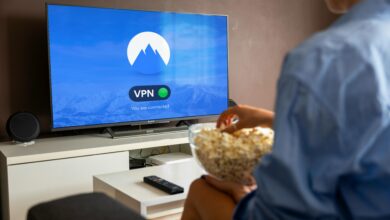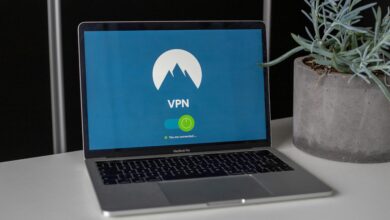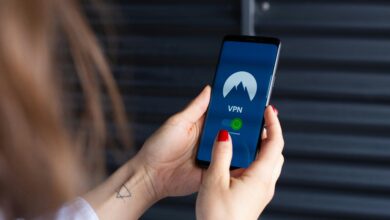How to Use a VPN for Enhanced Online Privacy

In today’s digital age, online privacy is more important than ever. With cyber threats, data breaches, and invasive tracking becoming increasingly common, protecting your personal information while browsing the internet is crucial. One of the most effective tools for safeguarding your online activities is a Virtual Private Network (VPN) . A VPN encrypts your internet connection, masks your IP address, and ensures that your data remains private from hackers, advertisers, and even your Internet Service Provider (ISP).
In this article, we’ll explore how to use a VPN to enhance your online privacy, including its benefits, setup process, best practices, and tips for choosing the right VPN service.
What is a VPN?
A Virtual Private Network (VPN) creates a secure, encrypted tunnel between your device and the internet. When you connect to a VPN server, your internet traffic is routed through that server, masking your real IP address and location. This makes it difficult for third parties—such as ISPs, government agencies, or malicious actors—to monitor your online activity or track your physical location.
Key Benefits of Using a VPN
- Enhanced Privacy : Encrypts your internet traffic, preventing others from spying on your online activities.
- Anonymity : Hides your IP address, making it harder for websites and advertisers to track you.
- Bypass Geo-Restrictions : Access content that may be restricted in your region (e.g., streaming services).
- Secure Public Wi-Fi : Protects your data when using unsecured networks, such as coffee shop Wi-Fi.
- Prevent ISP Throttling : Stops ISPs from slowing down your connection based on your browsing habits.
How to Set Up and Use a VPN
Using a VPN is relatively straightforward, but it’s important to follow the correct steps to ensure maximum security and privacy. Here’s a step-by-step guide:
Step 1: Choose a Reliable VPN Service
Not all VPNs are created equal. Some prioritize speed over security, while others log user data despite claiming to protect privacy. When selecting a VPN, consider the following factors:
- No-Logs Policy : Ensure the provider does not store logs of your online activity.
- Strong Encryption : Look for AES-256 encryption, the industry standard for securing data.
- Server Locations : More server locations mean better options for bypassing geo-restrictions.
- Kill Switch Feature : Automatically disconnects your internet if the VPN connection drops, preventing data leaks.
- Reputation : Research reviews and independent audits to verify the provider’s trustworthiness.
Popular VPN providers include NordVPN , ExpressVPN , Surfshark , and ProtonVPN .
Step 2: Download and Install the VPN App
Once you’ve chosen a VPN service, download the app for your device. Most reputable VPNs offer apps for:
- Windows, macOS, and Linux (for computers)
- iOS and Android (for smartphones and tablets)
- Smart TVs, routers, and gaming consoles (for additional devices)
Follow the installation instructions provided by the VPN provider.
Step 3: Sign In and Connect to a Server
After installing the app, sign in with your account credentials. Then:
- Open the app and select a server location. For general privacy, choose a server in a country other than your own. If you’re trying to access geo-restricted content, select a server in the desired region.
- Click “Connect” to establish the VPN connection. Once connected, your IP address will change, and your traffic will be encrypted.
Step 4: Verify Your Connection
To ensure your VPN is working properly:
- Visit websites like ipleak.net or whatismyip.com to confirm that your IP address has changed.
- Check for DNS leaks, which could expose your real location.
Step 5: Use the Internet Securely
With the VPN active, you can browse the web, stream content, or shop online with enhanced privacy. Remember:
- Always keep the VPN connected when using public Wi-Fi.
- Avoid entering sensitive information unless the website uses HTTPS (look for the padlock icon in the browser address bar).
Best Practices for Using a VPN
To maximize the effectiveness of your VPN and maintain your online privacy, follow these best practices:
1. Keep Your VPN Active
For optimal protection, leave the VPN running whenever you’re online. Turning it off exposes your data to potential risks.
2. Use Multi-Factor Authentication (MFA)
Even with a VPN, enable MFA on your accounts to add an extra layer of security.
3. Avoid Free VPNs
Many free VPNs compromise privacy by logging your data or displaying ads. Invest in a reputable paid service for better security and performance.
4. Regularly Update Your VPN App
Keep your VPN software up to date to benefit from the latest security patches and features.
5. Combine with Other Privacy Tools
Use a VPN alongside other tools like ad blockers, anti-tracking extensions (e.g., Privacy Badger), and password managers for comprehensive protection.
Common Misconceptions About VPNs
While VPNs are powerful tools, there are some misconceptions about what they can and cannot do:
Misconception 1: A VPN Makes You Completely Anonymous
While a VPN enhances privacy, it doesn’t make you completely anonymous. To achieve true anonymity, combine a VPN with tools like Tor and avoid sharing identifiable information online.
Misconception 2: A VPN Slows Down Your Internet
While some VPNs may slightly reduce speeds due to encryption, high-quality providers minimize this impact. Choosing servers closer to your location can also improve performance.
Misconception 3: A VPN Protects Against All Cyber Threats
A VPN encrypts your connection but doesn’t protect against malware or phishing attacks. Use antivirus software and exercise caution when clicking links or downloading files.
When Should You Use a VPN?
Here are some scenarios where using a VPN is particularly beneficial:
- On Public Wi-Fi Networks : Protect your data from hackers lurking on unsecured Wi-Fi hotspots.
- Accessing Sensitive Information : Safeguard your login credentials and financial details when banking or shopping online.
- Streaming Geo-Restricted Content : Watch shows or movies unavailable in your region.
- Avoiding Government Censorship : Bypass restrictions in countries with limited internet freedom.
- Working Remotely : Securely access company resources without exposing sensitive data.


